- Learning time
- 20 minutes
- First play time
- 60 minutes
The Guild of Merchant Explorers
Designed by: Brett J. Gilbert,Matthew Dunstan
In The Guild of Merchant Explorers, everyone is exploring their own map at the same time, and scoring points in a variety of ways. Although everyone’s maps are the same (there are four sets of four maps in the box) how you explore them will vary from player to player.
Everybody begins with a map in front of them and explorers (cubes) and villages (building-shaped pieces) of their own colour. Over four rounds, you’ll explore by placing explorers contiguously across the hexes of the map, starting from the central city. It works like this: in round one, exploration cards are revealed one by one, and when they’re revealed all players explore at the same time. The cards denote where you can explore, matching the hex types on your map: sea, desert, mountains and grassland. As you spread your explorers across the board, a number of things can – and hopefully will – occur.
First of all, many hexes have coins printed on them, so exploring there means you take coins from the supply – as the game is essentially about gathering the most cash, this is good. If you connect two city (numbered) hexes, you establish a ‘trade route’ and gain coins equal to the two city numbers multiplied together. If you explore a ruin, you gain a treasure card – a mix of small immediate rewards or potential endgame bonuses. If you explore a tower hex, you place a tower there and gain cash: the more towers you place, the more coins you get in return. In the case of cities and ruins, these can still be explored in a future round, but you’ll no longer get the benefits: ruins and one city from a pair of scoring cities are ‘marked off’ as used, using tokens the game supplies. Finally, everyone will be able to play a unique-to-them discovery card, which allows special, powerful moves across the map.
If you entirely fill a region of matching landscapes with explorers, you remove one of them and replace it with a village. Villages are important, because at the end of each round all explorers are removed, and will begin their work again from scratch. Villages, however, stay, and you may begin exploring from a village instead of (or as well as) the central city.
As the subsequent rounds play out, everyone receives more discovery cards and your flex on the map gains increasingly powerful – allowing you to travel further, build more towers, explore more ruins and establish bigger trade routes. There are also objectives that can be scored (first to build two towers, for instance) and doing them before anyone else gains you more cash than anyone who comes later. After the fourth round (where you get to play one of your discover cards twice!) players add up cash earned, plus any from endgame bonuses on treasure cards, and the richest player is best merchant.
The guru's verdict
-
Take That!
Take That!
None at all
-
Fidget Factor!
Fidget Factor!
Very low - everyone is taking turns at the same time, so the only thing that might frustrate is being beaten to an objective.
-
Brain Burn!
Brain Burn!
It's not an intense strategy game, but one that demands you react to the order the exploration tiles come out, which is random from round to round, and making sure you're always building towards something fruitful rather than randomly meandering.
-
Again Again!
Again Again!
Four different maps; randomness in how you explore, a variety of objectives and oft-rewarding treasure cards: it'll be a while before the game feels anywhere near stale.

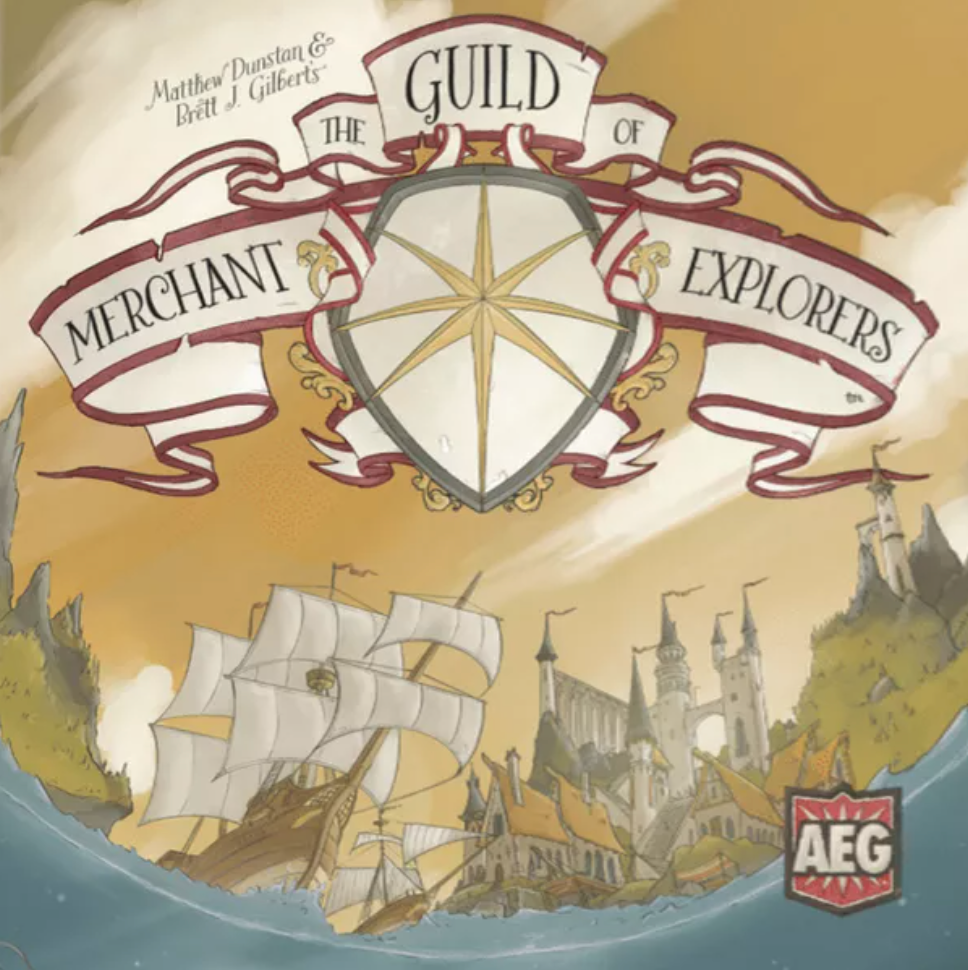
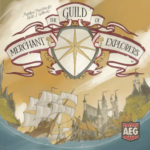
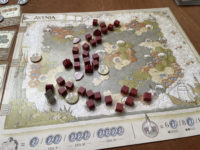
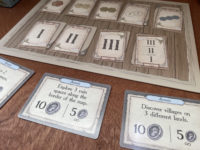
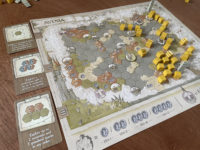
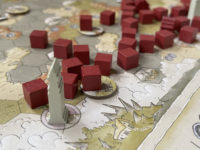
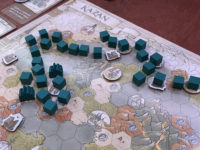


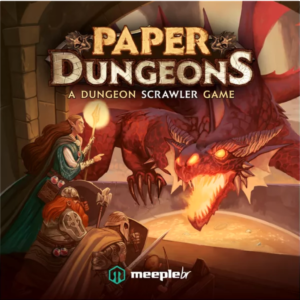
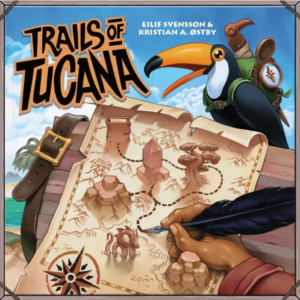
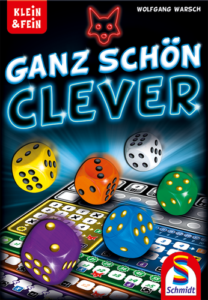
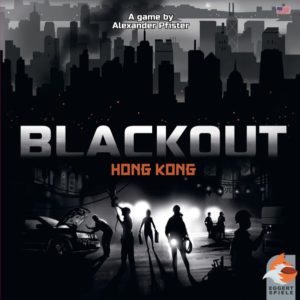
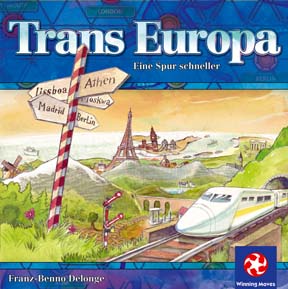
Sam says
Generally, I'm not a massive fan of games where everyone's busy with their own board and the only moment you acknowledge each other is at the end of the game - I find games that go for more interaction, whether it's combat or conversation, just appeal more. I should probably note as well that the pieces here all feel slightly too small - big hands will find the removing of explorers each round fiddly! ...But that said, I cannot deny there is a lovely, more-ish quality to The Guild of Merchant Explorers that made me want to return to it a number of times, trying the different maps, improving my score and pitting my wits against other explorers. I like the inherent risk in certain moves - hoping the exploration cards will come out in a certain order - and the satisfaction of chaining an enormous route together and hauling in a big points reward. The Guild of Merchant Explorers rises substantially above my own reservations and does something really rather clever with the idea of... looking around!